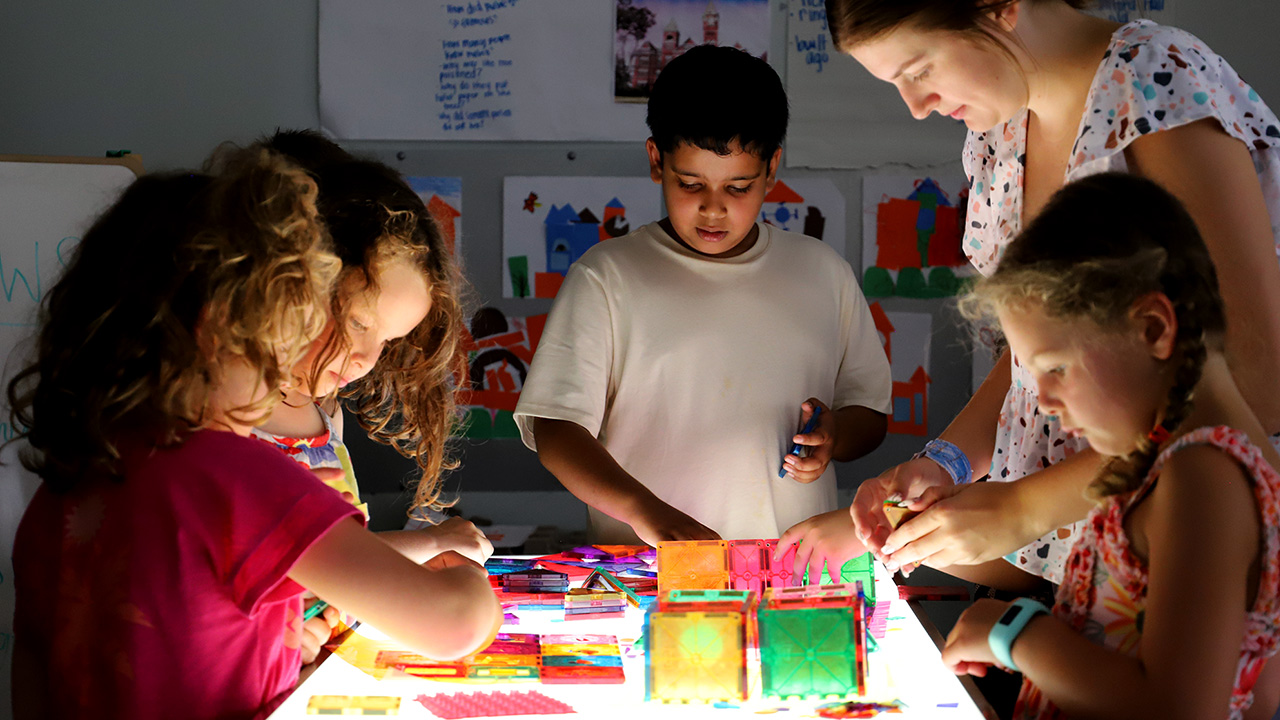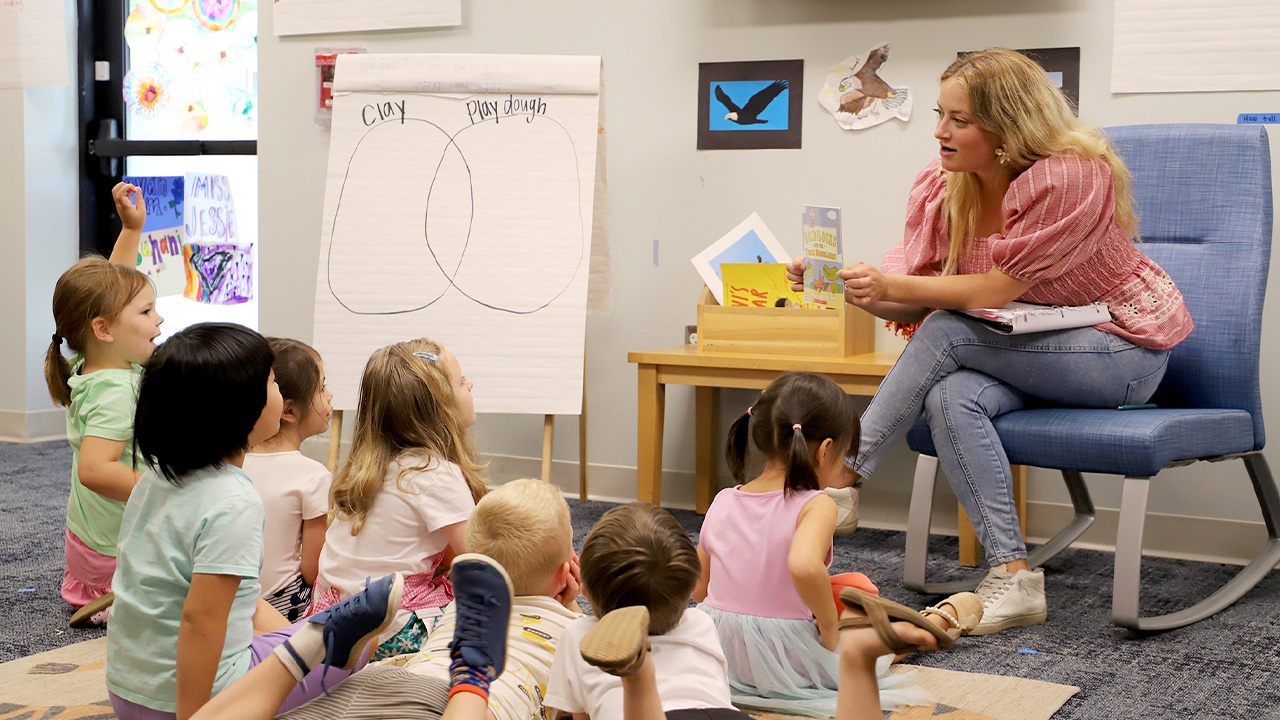content body
History. Art. Science. Mathematics. Engineering.
This might sound like a challenging semester of college classes, but these subjects are actually some of the topics children learned about through play while attending the College of Education’s Early Childhood Summer Enrichment Program.
In this annual program, community members enroll their children, aged 5 to 8, four days a week at the College of Human Sciences’ Early Learning Center. There, they are placed in small classes with a low student-teacher ratio and taught by Auburn students majoring in Early Childhood Education. While the children are having fun, the student teachers, who are supervised by experienced Auburn faculty, are learning about the importance of incorporating play into the classroom.
“Our program philosophy centers around the science of child development,” said Program Director Sean Durham, an associate professor in the Department of Curriculum and Teaching. “We’ve seen in our practice that play drives the learning of young children. Summer enrichment allows our future teachers the opportunity to see for themselves how brilliantly motivated children can be when they are allowed to pursue their interests and given the freedom to play.”
So, how does play help children to learn? Durham says the inclusion of play in children’s learning environments promotes growth in all developmental areas.
“It is important to children’s physical, social, emotional and cognitive well-being,” he said. “Unfortunately, children’s play has decreased dramatically in recent decades, and tried-and-true play-based teaching methods have been cast aside.”
That’s why Durham works so hard to teach his students how to include play in everyday learning activities, and a big part of that is allowing children to take the lead on studying things that interest them. This summer, the program’s theme was “All About Auburn.” With field trips to Samford Hall, Jordan-Hare Stadium and Toomer’s Corner, each classroom gravitated toward a different aspect of campus or traditions.
“Our students introduced the Auburn theme the first week and spent time listening and observing what the children were interested in learning,” said Clinical Lecturer Lindsay Griffies. “The three-year-old class was interested in Aubie. The four- and five-year-old class learned about eagles, and the six- and seven-year-olds learned about Samford Hall. This curriculum is meaningful because the students have a choice in what they are learning but also allows for the integration of all subject areas and incorporates many standards.”
Having developed a serious interest in Samford Hall, the six- and seven-year-old students took multiple field trips to make sketches of the building and tour some of the areas inside. Their teachers led them in using their own drawings, observations and photographs to construct the building out of blocks by measuring, stacking, designing and connecting materials. They discussed the Samford Hall clock tower to incorporate math and studied landscaping and flowers to include science.
Another classroom developed an interest in eagles after learning the Auburn fight song. The student teachers developed lessons on eagle growth, development and habitats, and the class worked together to craft a surprisingly detailed clay eagle.
“Play provides a context for serious learning” Durham said. “We speak of children being young scientists. They ask interesting questions, make observations, record and analyze data and draw conclusions about the world around them.”
One parent said her children enjoyed the summer in part because they learned about things they are truly interested in.
“In the classroom, the student teachers have done a brilliant job of encouraging the kids to spend time focusing on their special interests — painting for Sylvie and building for Remy,” said Kristen Hinnant. “We wanted Remy and Sylvie to enjoy their time off from school, and these four weeks of Summer Enrichment have been exactly what they needed. The kids come home tired and happy each day.”
In order to see for themselves just how play is implemented in the classroom, the Auburn students are largely teaching on their own, while Durham and Griffies evaluate their work from observation rooms.
“My cohort and I were scared because we didn’t have a cooperative teacher in charge of us,” said rising senior Jordan Harkins. “This was not a dip in the pool, it was being thrown in the deep end. Dr. Durham and Mrs. Griffies would be circulating through the building and observing us, but they were never hovering.
“They let us learn on our own, because in the end, we’re going to be by ourselves in the classroom in our internship next spring.”
The experience of learning to institute play while teaching independently can make a significant impact on a young teacher. Durham is glad his students had this summer to see for themselves how much knowledge children can absorb when they have a choice in what they’re learning.
“Much education is so adult-dominated that children miss opportunities to become self-directed, confident human beings,” said Durham. “In summer enrichment, we help future teachers learn how to plan learning environments and experiences that respect children’s natural abilities to explore and grow.”












